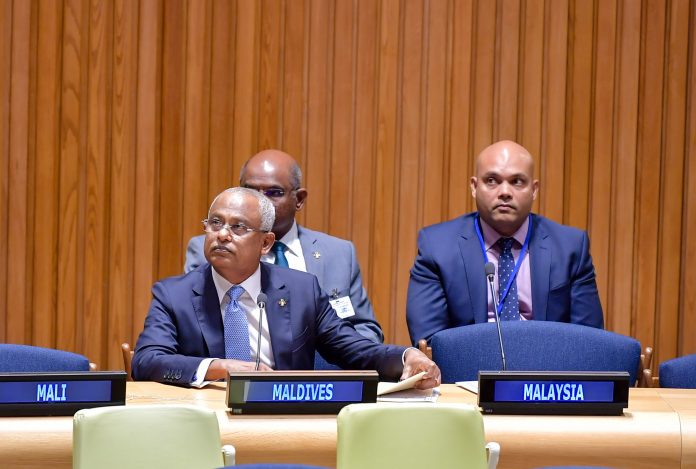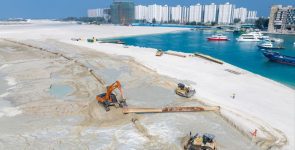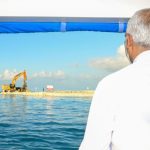
President Ibrahim Mohamed Solih stated that the Maldives aims to build climate-smart and resilient islands, significantly strengthen our Nationally Determined Contributions under the #ParisAgreement, rapidly switch from fossil fuel to renewable energy, and move to low carbon transport.
As part of finalizing the National Strategic Development Plan, the government is currently working with stakeholders to compile its spatial planning, with the aim of comprehensive National Maritime Transport Connectivity.
Maldives, a country comprising of 99% sea, Marine Transport segment accounts for most of its’ transport sector Greenhouse Gas emissions. However, it also forms a vital part of the country’s effort to build a climate-resilient population, connecting dispersed populations’ ability to access vital services. It is also a key pledge of the current government in its vision to decentralize.
Currently, Transport is the second-largest emitter of Greenhouse Gases (GHG), contributing to 21.53% of emissions. In the absence of mitigation measures in the transport sector, GHG emissions are projected to increase by nearly 287% by 2030.












